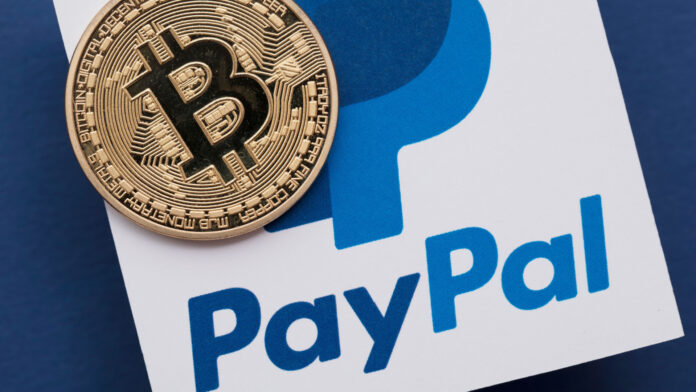Bank of America reacts to the launch of PayPal’s U.S. dollar-pegged stablecoin PYUSD and argues that the asset is not likely to be used widely, at least not in the short term.
PayPal’s recent groundbreaking announcement about the launch of its U.S. dollar-denominated stablecoin PYUSD has provoked its share of criticism around the world. While it does seem a significant step towards crypto adoption, some say that PayPal won’t see much success any time soon.
One of the U.S. largest banks, Bank of America, described the main reasons why PayPal USD is not likely to witness immediate adoption in its recent research report.
Competing Against CDBCs
First of all, Bank of America’s analysts Alkesh Shah and Andrew Moss explained that the PayPal’s stablecoin might face intense competition on the market:
“Over the longer term, we expect PYUSD to experience additional adoption headwinds as competition from central bank digital currencies (CBDCs) and yield-bearing stablecoins increases.”
It is true that numerous countries are actively exploring central bank digital currencies (CBDCs) that could potentially compete with stablecoins as both are based on similar technologies and pegged to fiat currencies. Only this year, countries such as Brazil, South Korea, Russia, Japan, the UK, among others have reported new developments on the rollout of their CBDCs. There are speculations that the U.S. might also be working on its CBDC, even though some of the country’s presidential candidates have claimed to be against it.
Competing Against Other Stablecoins
Besides, there are many other stablecoins PYUSD will have to compete with. Yield-bearing stablecoins are now especially attractive to investors, according to Bank of America:
“Investors may have been fine holding non-yield bearing stablecoins, such as USDT and USDC, when rates were close to zero, but yield-bearing stablecoins will likely become increasingly available and attractive with short-term rates above 5%.”
Dealing with Regulatory Scrutiny
Finally, the analysts also suggested that PayPal could face regulatory troubles if traditional banks are banned from issuing stablecoins:
“Investors are likely indifferent to which stablecoins they hold as long as the stablecoins are perceived as safe and accessible on the largest trading platforms. We do not expect PYUSD’s launch to lead to accelerated regulatory clarity, given the stablecoin’s issuance does not alter systemic risk for traditional markets, but the stablecoin may face regulatory headwinds if non-banks are ultimately barred from stablecoin issuance.”
Only a day after PayPal had unveiled its stablecoin project, the U.S. Federal Reserve published new guidelines regarding the use of “dollar tokens” by American banks. According to the statement, in order to engage in any sort of activity linked to stablecoins, the U.S. banks will now have to receive a written supervisory non-objection from the Fed.
Meanwhile, crypto scammers didn’t wait long to try and profit from the big news and flooded decentralized exchanges with fake PayPal tokens.
Disclaimer: This article is provided for informational purposes only. It is not offered or intended to be used as legal, tax, investment, financial, or other advice.
Credit: Source link






















 Bitcoin
Bitcoin  Ethereum
Ethereum  XRP
XRP  Tether
Tether  Solana
Solana  USDC
USDC  Dogecoin
Dogecoin  Cardano
Cardano  Lido Staked Ether
Lido Staked Ether  TRON
TRON  Wrapped Bitcoin
Wrapped Bitcoin  Wrapped stETH
Wrapped stETH  Chainlink
Chainlink  Avalanche
Avalanche  Sui
Sui  Stellar
Stellar  Litecoin
Litecoin  Toncoin
Toncoin  Shiba Inu
Shiba Inu  Hedera
Hedera  LEO Token
LEO Token  USDS
USDS  Hyperliquid
Hyperliquid  WETH
WETH  Polkadot
Polkadot  MANTRA
MANTRA  Bitcoin Cash
Bitcoin Cash  Bitget Token
Bitget Token  Ethena USDe
Ethena USDe  Wrapped eETH
Wrapped eETH  Uniswap
Uniswap  Monero
Monero  NEAR Protocol
NEAR Protocol  Pepe
Pepe  WhiteBIT Coin
WhiteBIT Coin  Aave
Aave  Ondo
Ondo  Bittensor
Bittensor  Aptos
Aptos  Internet Computer
Internet Computer  Dai
Dai  Official Trump
Official Trump  Mantle
Mantle  Ethereum Classic
Ethereum Classic  Tokenize Xchange
Tokenize Xchange  OKB
OKB  Gate
Gate  sUSDS
sUSDS  Coinbase Wrapped BTC
Coinbase Wrapped BTC 
